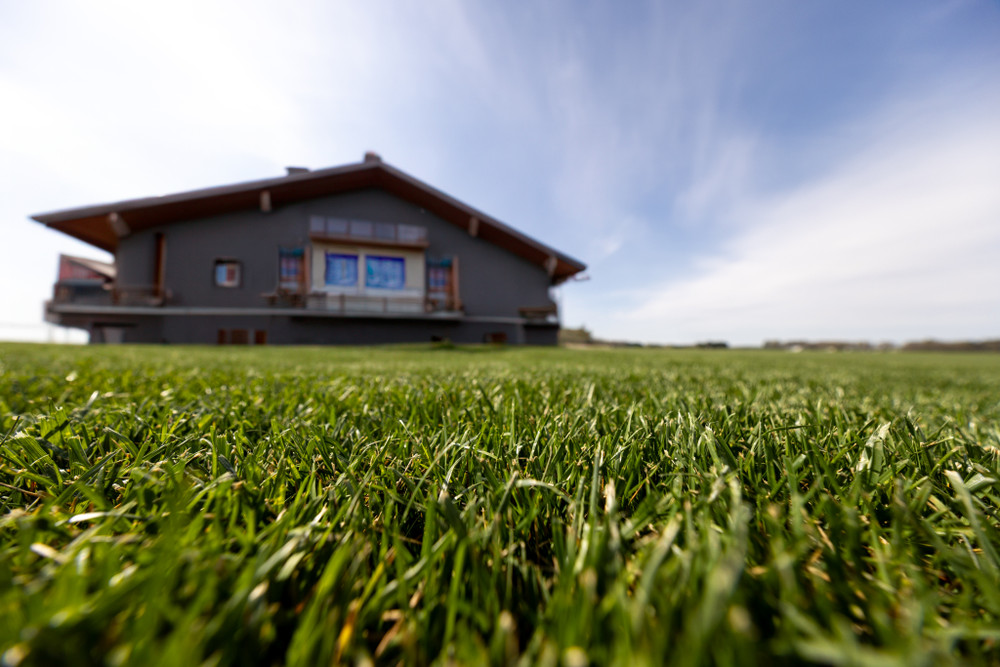Nashville Sod Guide: Choosing the Right Grass for Middle Tennessee
Posted by Farm2Yard on Sep 22nd 2025
Nashville Sod Guide: Choosing the Right Grass for Middle Tennessee
1. What Climate Is Nashville In?
Nashville sits in a humid subtropical climate and falls within USDA Plant Hardiness Zones 7a–7b. This climate means:
-
Hot, humid summers with highs regularly in the 90s.
-
Mild winters, but with occasional cold snaps and freeze events.
-
Transition zone conditions, where both warm-season and cool-season grasses can grow, but each has seasonal challenges.
Because Nashville straddles this “transition zone,” turfgrass choices need to be strategic: warm-season grasses thrive in the summer but go dormant in winter, while cool-season grasses stay green longer but can struggle in peak heat. (University of Tennessee Extension)
2. The Best Sod Types for Nashville: Bermuda and Tall Fescue
Bermudagrass
-
Type: Warm-season sod.
-
Strengths: Excellent heat and drought tolerance, quick to establish, handles heavy foot traffic. Commonly used for residential lawns, sports fields, and golf courses.
-
Weaknesses: Goes fully dormant and brown in winter; poor shade tolerance; vulnerable to winter kill in poorly drained or exposed areas.
-
Best Fit: Sunny Nashville lawns that need durability in summer and can tolerate winter dormancy.
Tall Fescue
-
Type: Cool-season sod.
-
Strengths: Stays green through much of the year, including winter; better shade tolerance than Bermuda; deep root system provides some drought resistance.
-
Weaknesses: Heat stress and fungal diseases (like brown patch) can be issues in humid summers; requires more consistent irrigation and care during July–August.
-
Best Fit: Shady or mixed-light lawns, or homeowners who want green color year-round.
3. How Nashville’s Weather Impacts Sod Choice
-
Heat & Humidity: Bermudagrass thrives in peak summer; tall fescue may wilt or develop fungal issues if not managed carefully.
-
Winter Freezes: Tall fescue stays green and active, while Bermuda goes dormant until spring.
-
Shade & Microclimates: In sunny, open lawns, Bermuda dominates; in tree-lined or partially shaded yards, fescue performs better.
-
Rainfall Patterns: Nashville’s rain is uneven - wetter springs/falls, drier summers. Fescue often benefits from fall moisture, while Bermuda’s deep roots help in summer droughts.
(University of Tennessee Extension – Turfgrass Management)
4. Seasonal Maintenance Guide
| Season | Bermudagrass | Tall Fescue |
| Spring (Mar - May) | Green-up begins when soil warms; apply pre-emergent herbicides; light fertilizer after active growth starts. | Strong growth; fertilize moderately; overseed thin areas; manage weeds. |
| Summer (Jun - Aug) | Peak growth; mow often; water deeply but infrequently; monitor pests (armyworms, grubs). | Stress period; water regularly to reduce drought stress; raise mowing height; watch for fungal diseases like brown patch. |
| Fall (Sep-Nov) | Growth slows; apply fall fertilizer to build roots before dormancy. | Prime growing season; overseed, aerate, and fertilize for density; good time for new sod installation. |
| Winter (Dec-Feb) | Fully dormant; protect from heavy traffic; no mowing needed. | Growth slows but turf remains green; mow occasionally; avoid heavy fertilization. |
5. Best Time of Year to Lay Sod in Nashville
-
Bermudagrass: Late spring through early summer (May–June), once soil temps are consistently warm. This gives the sod the entire growing season to establish before winter. (UT Extension Sod Establishment Guide)
-
Tall Fescue: Early fall (mid-August–September) is best, with cooler air, warm soil, and reliable rainfall. Spring installation is possible but less ideal because sod faces summer stress soon after establishment.
6. General Sod Tips for Nashville Lawns
-
Soil Prep: Remove debris and weeds, till compacted soil, and grade for drainage. Test soil through UT Extension services for pH and fertility.
-
Irrigation: New sod needs frequent light watering until rooted. Long-term, water deeply and less often to encourage strong roots.
-
Mowing: Never cut more than one-third of blade height. Keep Bermuda shorter (1–2 inches) and tall fescue taller (3–4 inches).
-
Fertilization: Use soil test results to guide applications. Avoid over-fertilizing, especially in summer for fescue (disease risk) or late fall for Bermuda.
-
Pest & Disease Control: Monitor Bermuda for insects (armyworms, grubs); monitor fescue for fungal issues. Preventative treatments may be needed in high-risk months.
-
Shade Management: Bermuda requires full sun. For partially shaded lawns, fescue is a better fit.
Key Takeaways
-
Nashville’s transition zone climate supports both Bermuda and Tall Fescue sod, but each performs best under different conditions.
-
Choose Bermuda for sunny lawns needing durability in summer.
-
Choose Tall Fescue for shaded lawns or homeowners who want green turf year-round.
-
The best installation times are late spring for Bermuda and early fall for Tall Fescue.
-
Following seasonal maintenance and proper watering will keep Nashville lawns healthy through both hot summers and variable winters.

